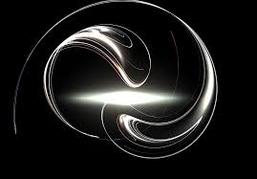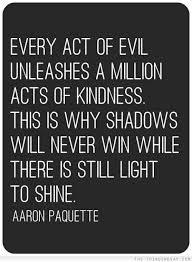 One of the amazing things that we tend to forget about the Universe is its absence of judgement. Disinterested in ‘right' or ‘wrong', which may as well be directions as in ‘destra' or ‘sinistra', the Universe doesn't split hairs over morality - it doesn't have time. Our lifetimes are tiny constructs of universal consciousness given a moment of opportunity to experience what it is to be alive. In that lifetime, we tend to get bogged down with tortuous judgements over good and evil, forgetting that these definitives are born from a conscience which doesn't log them in a notebook or seek to define what they are. Binary language is the closest code we have to simplify universal information-gathering techniques, and we use the words True and False to describe the most basic of polarised contexts in science. Something either is, or it is not.  Being jurors of ourselves may not be a bad thing, in the long run, for we only have ourselves to answer to, after all. But laying blame on doorsteps may well be an outdated mode of conduct given the fact that progress, the furtherance of information, is all the Universe is after. We don't need to worry about what happens in the world nearly as much as we need to be aware of what happens in ourselves. When people talk about ‘good' and ‘evil', they're using definitions which apply to their own context - someone else might consider them to be applicable in other ways. The illusions conjured by fear are the ones which strip us of freedom, and lead to a resistance to change. We don't want to change the rules because the consequences might be difficult, and we only really want an easy life. Love is good, fear is bad. But boundaries are easily blurred, and barriers easily crossed, when we know neither how fast we are going or where we are bound, as the Uncertainty Principle dictates. We can't determine one while looking at the other, nor can we guess what is on the other side of the quantum leap, which is what makes faith so interesting.  Having faith means believing in something, and can lead to our believing that thing so hard that we force it into a reality context by our determined expectation. This itself can lead to ‘evil' acts of murder, torture and victimisation. Love and fear are perhaps closer than we realise. Maybe they're just a hair's breadth from each other, the positive and negative of a spinning barrel down which our lives are fired. Perhaps we oscillate from one state to the other because they are one and the same thing, as the electron and positron are two sides of the same coin, ready to annihilate each other on contact because only one of those states can exist at any one moment in time. Maybe that means that living our moments, carpe deim style, with complete disregard for the judgement we are tempted to deliver, will give us the freedom to determine that what we do with our lives is important on a personal level, karmic implications notwithstanding, but the Universe doesn't mind - which means ‘God' doesn't mind - no matter how much anyone else would like to pretend otherwise. Lead us not into temptation - whatever that is.
0 Comments
Leave a Reply. |
AuthorKathy is the author of Quantumology. She met up with quantum mechanics in 1997, pledging allegiance to its sources thereafter. These are her personal thoughts and testimonies. Archives
April 2023
|
 RSS Feed
RSS Feed